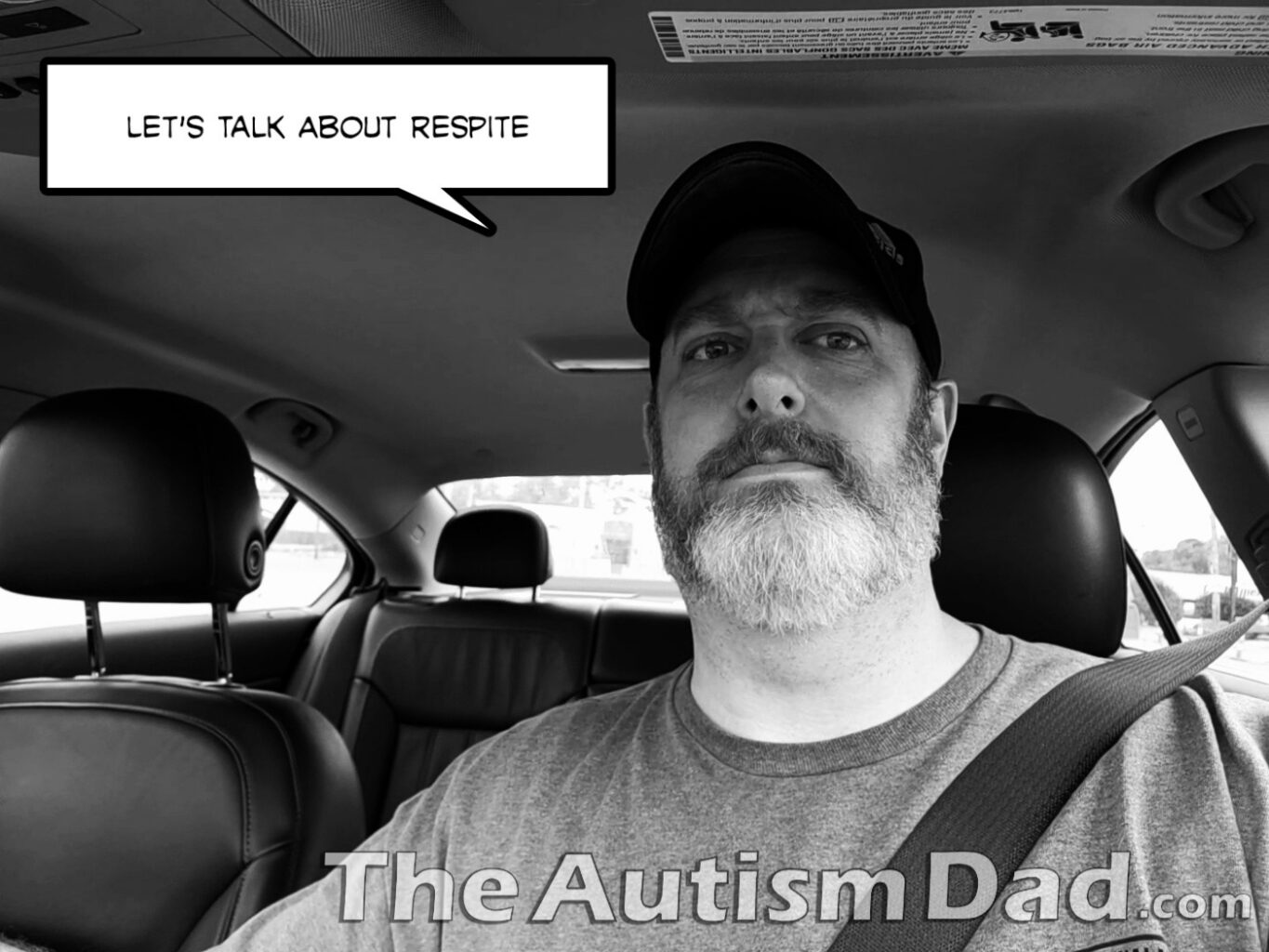I want to talk about something that’s really important and most parents don’t get enough of. If you’re a special needs parent, you’re probably all too familiar with the word respite. Basically, respite means break. More specifically, it means a temporary break and is usually associated with caregivers. While my focus is more on special needs parenting, this really applies to any parent because we all need to take care of ourselves and we all need a break from time to time.
Many of you know that respite is hard to come by for many caregivers, myself included. While my kids are older and can stay home alone for periods of time, that’s relatively new and wasn’t always like that. They can’t stay home overnight by themselves and while that can be limiting in some situations, it’s much more than so many other caregivers get.
One of the reasons respite is so important is because it’s a vital part of self care, which is a vital part of avoiding things like caregiver burnout. I’m not going to go into details about burnout because I have a huge writeup about burnout here.
Before we move on, here’s burnout in a nutshell.
A caregiver with burnout has become overwhelmed and is physically, emotionally, and mentally exhausted from the stress and burden of caring for their loved one. They may feel alone, unsupported, or unappreciated. They often haven’t been taking good care of themselves and may be depressed. Eventually, they can lose interest in caring for themselves and the person they look after. Almost every caregiver experiences burnout at some point. If it does happen and it’s not addressed, the caregiver eventually becomes unable to provide good care. For this reason, caregiver burnout can be harmful to the person receiving care as well as to the caregiver.
https://www.healthline.com/health/health-caregiver-burnout#what-is-caregiver-burnout
As a fulltime single dad of three, I’m acutely aware of burnout and do my absolute best to avoid it. That’s often easier said than done but it’s not impossible. Again, it’s much easier as my kids get older and more independent, but it can still be difficult at times.

One of the biggest challenges for me is getting meaningful breaks. Not all breaks are the same and it’s important to understand that. While any break is appreciated, overnight one’s are really important because a night of uninterrupted sleep can make a huge difference in the life of a sleep deprived parent. These are so much harder to come by but so incredibly important.
While my kids do so much more independent now, my youngest will still sometimes end up in my room for one reason or another. That pretty much guarantees I won’t be getting quality sleep. It’s just part of life for me. Some kids struggle with anxiety and that can make it hard for them to sleep. Sometimes kids with ADHD, a very common comorbid diagnosis, can’t shut their brains off. They have thoughts racing around inside their head and it keeps them awake. As a neurotypical adult, I struggle with that myself at times.
If you lined up a dozen special needs parents and asked about their sleep, I promise you, you’ll hear something like, “what’s sleep?”. I’ve said that countless times over the years. Sleep deprivation is a huge problem in the special needs parenting community, making respite all that more important.
I can remember people asking me what I was going to be doing while the kids were gone. The answer was almost always, sleep. Sounds lame but it’s totally true. When you don’t have much time for yourself, you have to prioritize the necessities, and sleep is one of them.
Some parents, like me, are lucky enough to have very supportive friends and family. There are parents out there who are able to have a friend or family member come over and spend some time with their child so they could take a nap. That’s huge but not everyone is so lucky. There are a great many single parents who can’t even use the bathroom alone because their child requires constant supervision, and they don’t have any help.
Respite is how many parents are able to practice self-care. Self-care is an absolutely vital part of maintaining balance in your life and avoiding things like caregiver burnout. I’ve talked a great deal about selfcare over the years because I feel it’s that important.
It’s been a long time since I’ve talked about respite and there’s a great deal to talk about. At the moment, I’ve intentionally kept this short because I’d like to encourage a conversation about respite and self-care. I can write a more detailed post later on if that’s of interest to anyone. For now, I have a few questions I’d like to ask because I’m genuinely interested in learning about your experience.
Do you receive any form of respite in your life, be it family, friends, or professional service? What has your experience been and do you find it difficult to relax during breaks from your kids?

